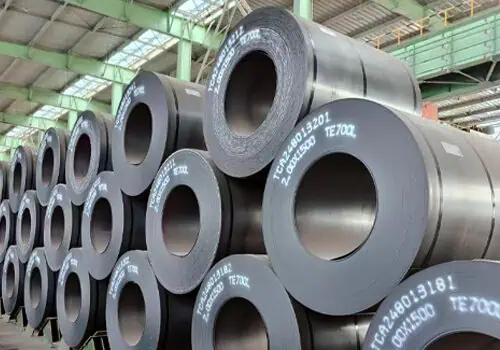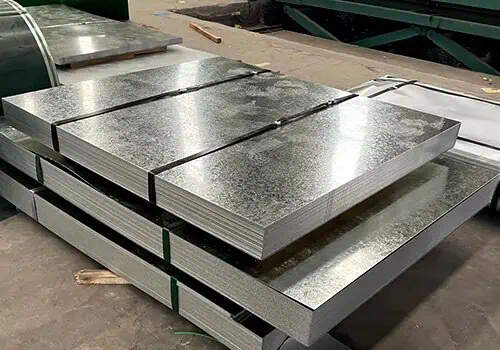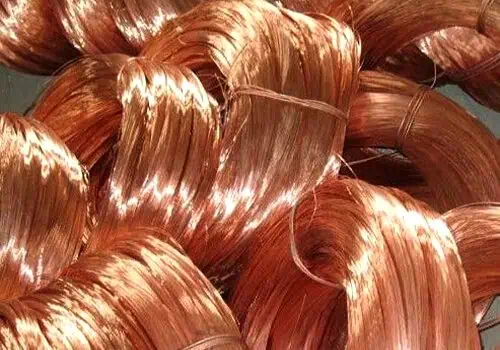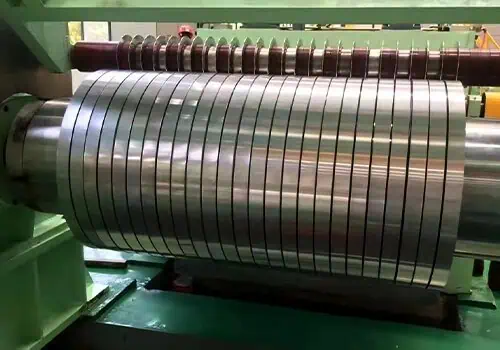¿Te estás preguntando sobre las bobinas de aluminio y cómo se usan en una variedad de industrias?? Descubre sus cualidades, tipo, y aplicaciones para ayudarlo a tomar decisiones de proyectos más educadas.
Bobina de aluminio es un material altamente versátil utilizado en múltiples industrias. Está disponible en varias formas, incluyendo hoja de aluminio enrollada, aluminio enrollado en frío, y bobina de aluminio. Comprender los diferentes tipos, propiedades, y las aplicaciones de la bobina de aluminio pueden ayudarlo a elegir el producto adecuado para sus necesidades.
Ahora, Vamos a profundizar en los muchos tipos de bobinas de aluminio y cómo se usan en varias industrias.
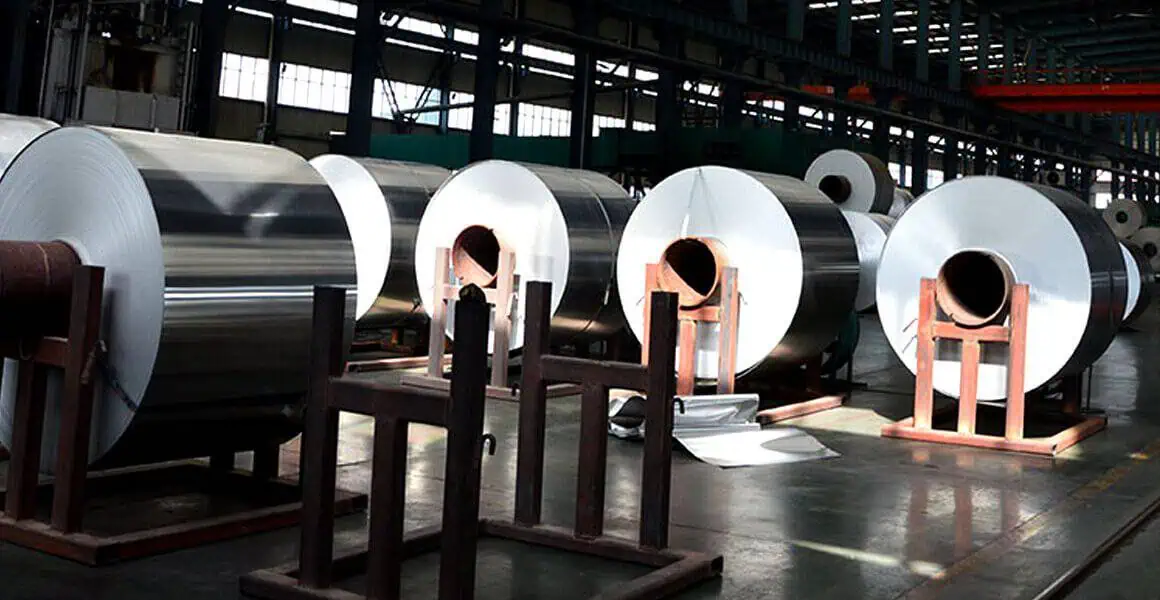
¿Qué es la bobina de aluminio y cuáles son los principales tipos de bobina de aluminio??
La bobina de aluminio está disponible en numerosas variedades diferentes., cada uno de los cuales se adapta para satisfacer las necesidades específicas en varios sectores. La bobina de aluminio de aleación es una de las más frecuentes, y se usa con frecuencia en aplicaciones que requieren un equilibrio de resistencia y peso, como el proceso de fabricación de láminas de aluminio. Estas aleaciones a menudo se clasifican como 3000 serie o 5000 serie, y proporcionan alta resistencia a la corrosión mientras mantienen una resistencia moderada.
La bobina de aluminio anodizada es otra opción común. Este tipo pasa por un procedimiento que trata la superficie del metal para crear una duración, recubrimiento de óxido protector. La anodización no solo aumenta la resistencia al desgaste del metal, sino que también mejora su atractivo visual, Los tonos de bobina de acabado de aluminio están disponibles para adaptarse a una variedad de aplicaciones arquitectónicas y de diseño.
La bobina de aluminio recubierta se usa con frecuencia para techos y revestimientos debido a su recubrimiento resistente a la corrosión. Esto lo hace especialmente útil en la fabricación de aluminio de aluminio, Donde pintado proveedores de bobina de aluminio Ofrezca recubrimientos que resisten el desgaste ambiental. Los recubrimientos se construyen con frecuencia con polímeros como poliéster o PVDF, que aumentan la durabilidad y la resistencia a la meteorización.
Además, El aluminio enrollado en caliente y el aluminio enrollado en frío son dos procedimientos de producción distintos. El aluminio enrollado en frío se trata a temperaturas más bajas, resultando en una superficie más suave y una mayor resistencia, que con frecuencia se requieren para ciertas aplicaciones mecánicas. En contraste, El aluminio enrollado caliente se trata a temperaturas más altas, resultando en más flexibilidad pero una superficie más gruesa. Cada variedad es más adecuada para diferentes métodos y aplicaciones de producción., Por lo tanto, la selección del uso apropiado está determinado por el uso previsto.
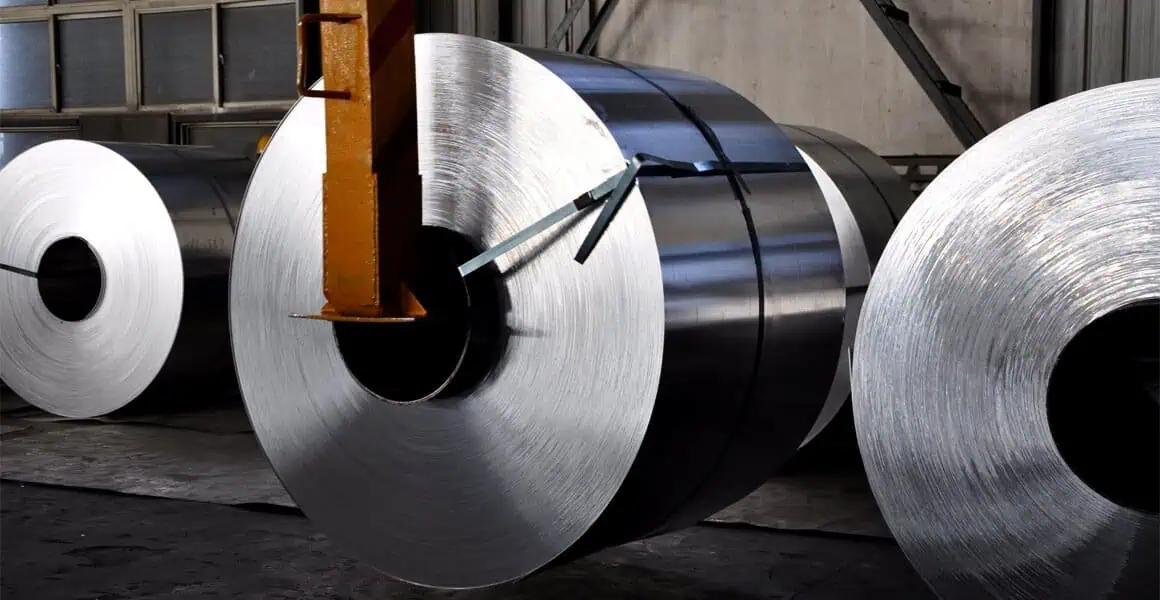
¿Cuáles son las propiedades clave de la bobina de aluminio??
La bobina de aluminio es conocida por sus principales cualidades, que lo hacen útil en una variedad de aplicaciones. Una de las características más importantes es su construcción ligera. El aluminio es sustancialmente más ligero que el acero, lo cual es importante en industrias como la automoción y la aeroespacial, donde la reducción de peso es crítica para el rendimiento y la eficiencia. A pesar de su naturaleza liviana, La bobina de aluminio tiene una impresionante proporción de resistencia a peso, asegurando la longevidad y la fiabilidad.
Otra característica importante de la bobina de aluminio es su capacidad para resistir la corrosión.. Esta propiedad lo hace apropiado para aplicaciones al aire libre o ubicaciones propensas a la humedad, como techos y revestimientos en la construcción de edificios. El anodizado bobina de aluminio También ofrece una mejor resistencia a la corrosión, haciéndolo una excelente solución para situaciones difíciles.
Otra característica distintiva de la bobina de aluminio es su alta conductividad, Por eso se emplea comúnmente en aplicaciones eléctricas. La conductividad del alambre de aluminio y la lámina es crítica en la producción de soluciones de eficiencia energética. Además, La bobina de aluminio tiene una formabilidad excepcional, permitiendo que se doblara o se enrolle en sábanas delgadas, resultando en su extensa aplicación en la fabricación de bobina de aluminio y otras formas de hoja de aluminio enrollada.
Finalmente, El grosor de la bobina de aluminio varía según el uso, ya sea aluminio delgado o más grueso, hojas más robustas para uso industrial. La bobina de aluminio es un material útil en una variedad de aplicaciones porque los fabricantes pueden variar su grosor para cumplir con los requisitos específicos.
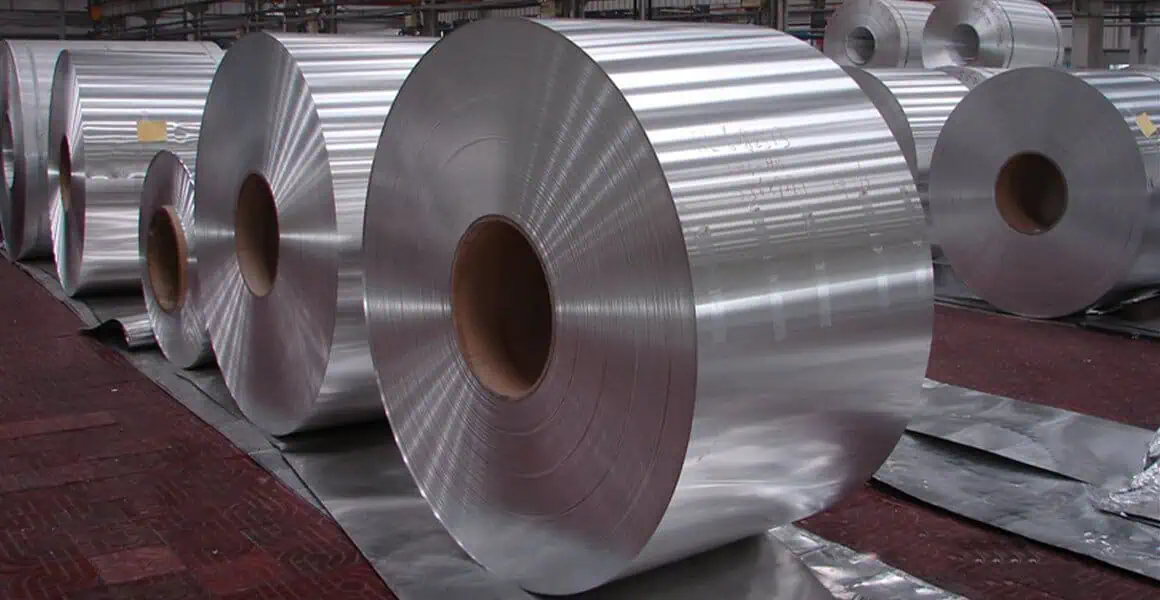
¿Para qué se usa la bobina de aluminio??
La bobina de aluminio se emplea en una variedad de sectores, con cada uno utilizando sus cualidades únicas para aplicaciones específicas. En edificio, Grandes hojas de aluminio se usan con frecuencia para revestir, techumbre, y revestimiento. Esto se debe a su naturaleza liviana y resistencia al óxido y a la corrosión., haciéndolo una excelente opción para los materiales de construcción de larga duración. Los colores de la bobina de acabado de aluminio son especialmente útiles en proyectos arquitectónicos, ya que permiten la versatilidad estética mientras permanecen duradero.
Bobina de aluminio se utiliza ampliamente en el sector automotriz para fabricar carrocería y componentes del automóvil. Su pequeño peso sirve para reducir el peso total del vehículo, que mejora la eficiencia y el rendimiento del combustible. La bobina de aluminio de aluminio también se usa comúnmente como aislamiento en automóviles, refrigeradores, y otros electrodomésticos porque proporciona una buena protección térmica.
La bobina de aluminio se usa en el sector electrónica para componentes como disipadores de calor y carcasas debido a su disipación de calor y capacidades de conductividad eléctrica. Similarmente, La lámina de aluminio se usa en el embalaje de alimentos para mantener la luz, humedad, y el aire por dañar la calidad de los alimentos, Por lo tanto, manteniendo la frescura y el aumento de la vida útil.
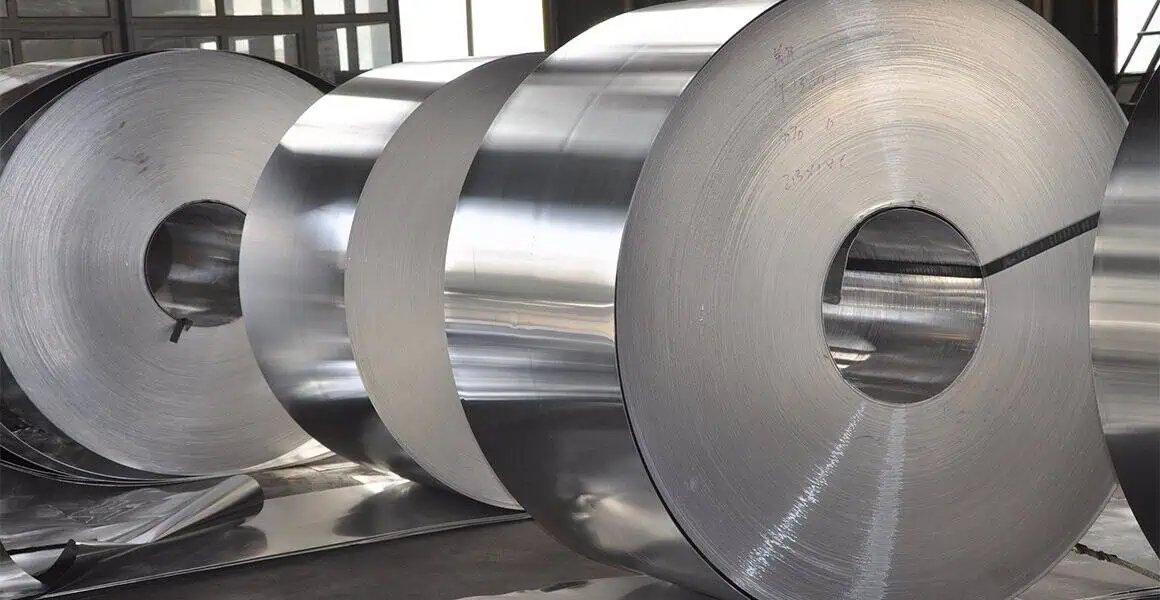
¿Cómo se fabrica la bobina de aluminio??
La fabricación de la bobina de aluminio consiste en numerosas fases cruciales, Comenzando con la fusión de desechos de aluminio o mineral de bauxita. Siguiendo la fusión, El aluminio se lanza en losas o palanquillas., que luego se enrollan en láminas de aluminio enrollables utilizando un proceso de rodadura en caliente. Durante esta etapa, El metal se calienta a alta temperatura y se enrolla sobre los rodillos para disminuir su grosor y produce las dimensiones necesarias, como 36 stock de bobina de aluminio ancho o 60 ancho hoja de aluminio.
El proceso de laminación del frío comienza, con el metal enfriado y alimentado a través de más rodillos. Este procedimiento proporciona a la bobina de aluminio una superficie más agradable y puede aumentar su resistencia. Después de la rodadura fría, Los proveedores de stock de bobina de aluminio frecuentemente exponen el aluminio al recocido, un tratamiento térmico que suaviza el metal, haciendo que sea más simple trabajar con.
Finalmente, dependiendo del uso final, La bobina puede pasar por procesos adicionales como el revestimiento, Anodizante, o pintar. Esto hace que la bobina sea apropiada para una variedad de sectores, incluyendo construcción y electrónica.
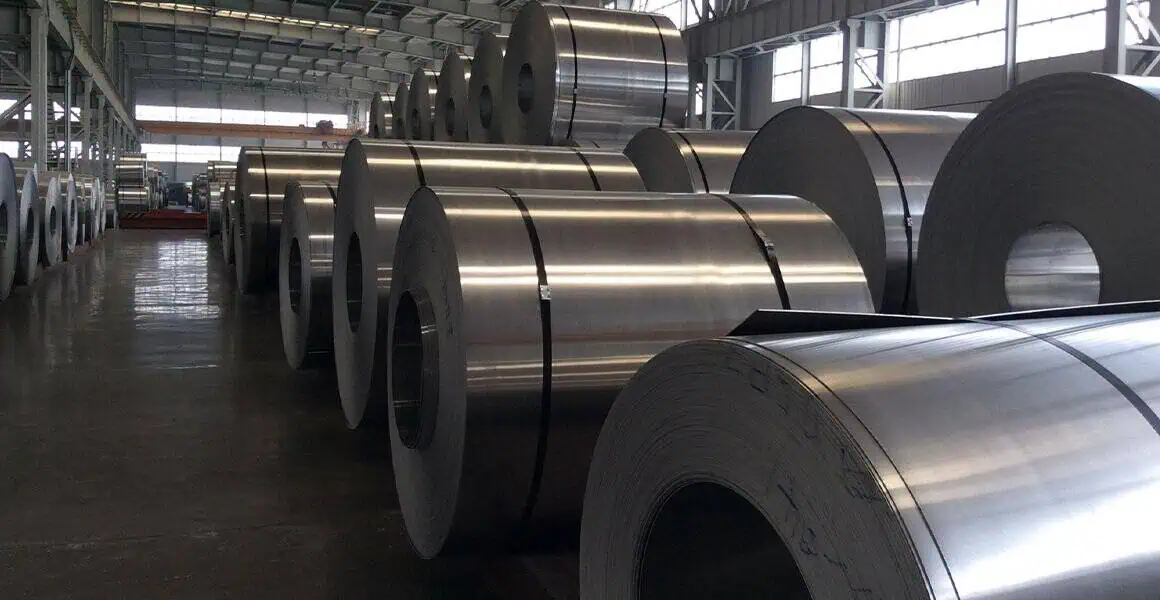
¿Cuáles son las aleaciones comunes de bobina de aluminio??
Las aleaciones de bobina de aluminio más utilizadas son de series distintas con diversas cualidades y propósitos. El 1000 serie, a menudo conocido como aluminio puro, es extremadamente resistente a la corrosión pero tiene resistencia reducida. El 3000 serie, comúnmente conocido como aluminio contra la romisión, se utiliza en aplicaciones que necesitan resistencia a la corrosión, como materiales de construcción y techado.
El 5000 aleaciones de la serie, que contienen aluminio de alta resistencia, se usan ampliamente en los sectores automotriz y marítimo. Estas aleaciones combinan resistencia y resistencia a la corrosión, haciéndolos excelentes para edificios y componentes sometidos a condiciones extremas.
Además, 1100 0 hoja de aluminio es una aleación versátil utilizada en una variedad de aplicaciones, incluyendo conductores eléctricos y bienes ornamentales. Comprender las propiedades de cada serie de aleación ayuda a determinar el mejor material para el proyecto, ya sea para componentes estructurales, aplicaciones eléctricas, o acabados decorativos.
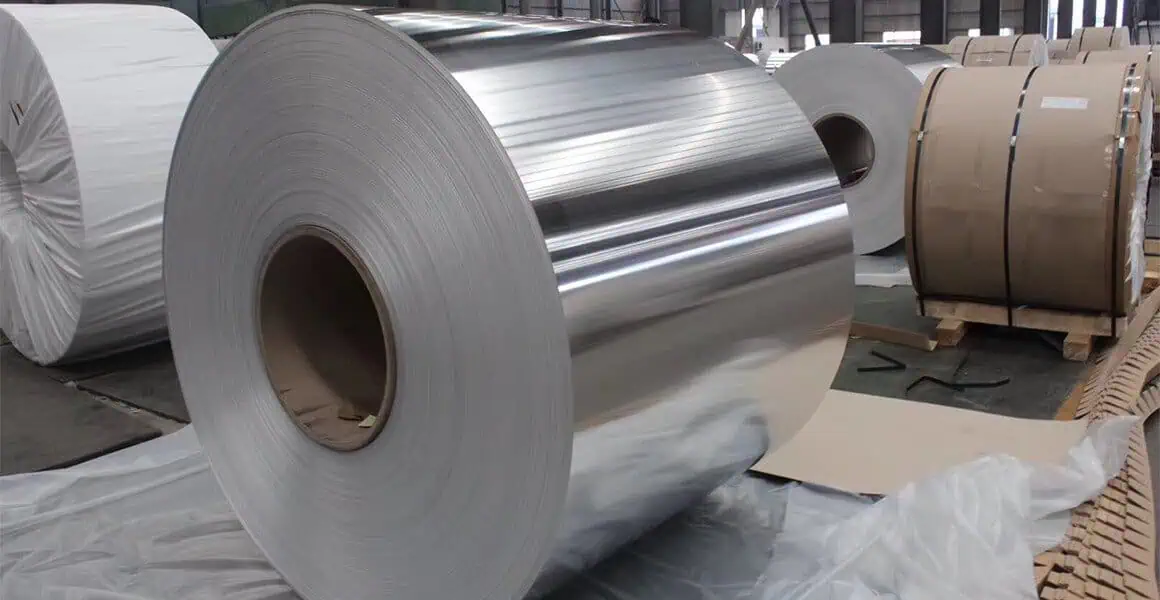
Cómo elegir la bobina de aluminio adecuada para sus necesidades?
Al seleccionar la mejor bobina de aluminio para sus propósitos, Se deben abordar numerosos aspectos. Primero, Establezca el grosor de la bobina de aluminio necesario para su aplicación. Las bobinas más gruesas se requieren con frecuencia para fines estructurales, Mientras que las bobinas más delgadas se utilizan comúnmente en la fabricación de papel de aluminio o artículos de aluminio enrollado.
Considere la aleación también. Si su proyecto requiere una resistencia de corrosión excepcional, 3000 Las aleaciones en serie o las bobinas anodizadas pueden ser apropiadas. Sin embargo, Si se requiere más fuerza, 5000 Las aleaciones en serie tienen mayores características mecánicas. También, Considere las alternativas de tratamiento de superficie. La bobina de aluminio recubierta o los proveedores de bobinas de aluminio pintados proporcionan una variedad de tratamientos que pueden aumentar tanto la durabilidad como la belleza.
Otras consideraciones incluyen el costo de hoja de aluminio por pie cuadrado, las aplicaciones para las que se utilizará, y si características especiales, como colores de bobina de acabado de aluminio, son necesarios para fines arquitectónicos.
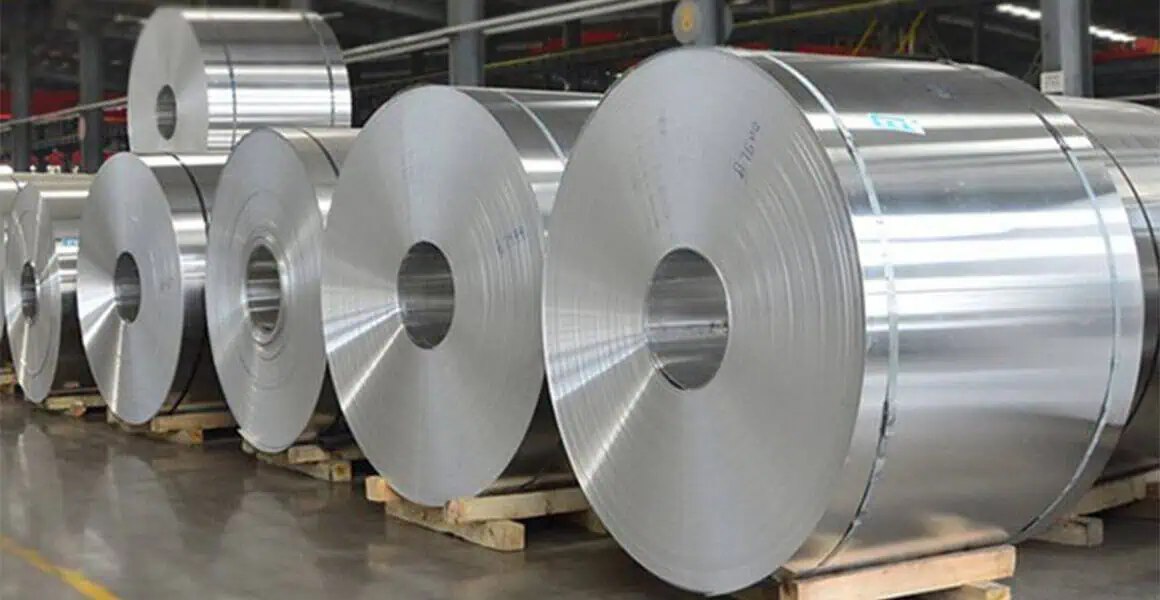
¿Cuál es la desventaja de la bobina de aluminio??
A pesar de sus muchos beneficios, La bobina de aluminio tiene algunas desventajas. Uno de los inconvenientes clave es su resistencia reducida en comparación con los materiales como el acero. Mientras que la bobina de aluminio es liviana y resistente a la corrosión, Puede que no sea la mayor opción para aplicaciones estructurales de servicio pesado que requieren la máxima resistencia.
Además, La bobina de aluminio puede ser más propensa a las abolladuras y rascado que otros metales, Especialmente en versiones más delgadas, como bobina de aluminio de aluminio o lámina de aluminio enrollada. Sin embargo, Los avances en composiciones de aleación y tecnologías de recubrimiento han ayudado a compensar algunas de estas dificultades, resultando en una mayor durabilidad en ciertas circunstancias.
¿Cuál es la diferencia entre una bobina de cobre y una bobina de aluminio??
Al comparar bobina de cobre versus bobina de aluminio, Las diferencias clave son la conductividad, costo, y durabilidad. Las bobinas de cobre son reconocidas por su alta conductividad eléctrica, lo que los hace excelentes para su uso en sistemas eléctricos. Sin embargo, bobina de aluminio es más ligero y menos costoso, haciéndolo una opción más rentable en muchas aplicaciones.
En términos de durabilidad, La bobina de aluminio es más resistente a la corrosión, especialmente cuando se anodiza o recubren. Bobinas de cobre, mientras que es resistente, son más susceptibles a la oxidación y la corrosión, especialmente en condiciones al aire libre. La bobina de aluminio a menudo es menos costosa que el cobre, Haciéndolo una opción atractiva para aplicaciones a gran escala, como la fabricación de automóviles o el envasado de alimentos..
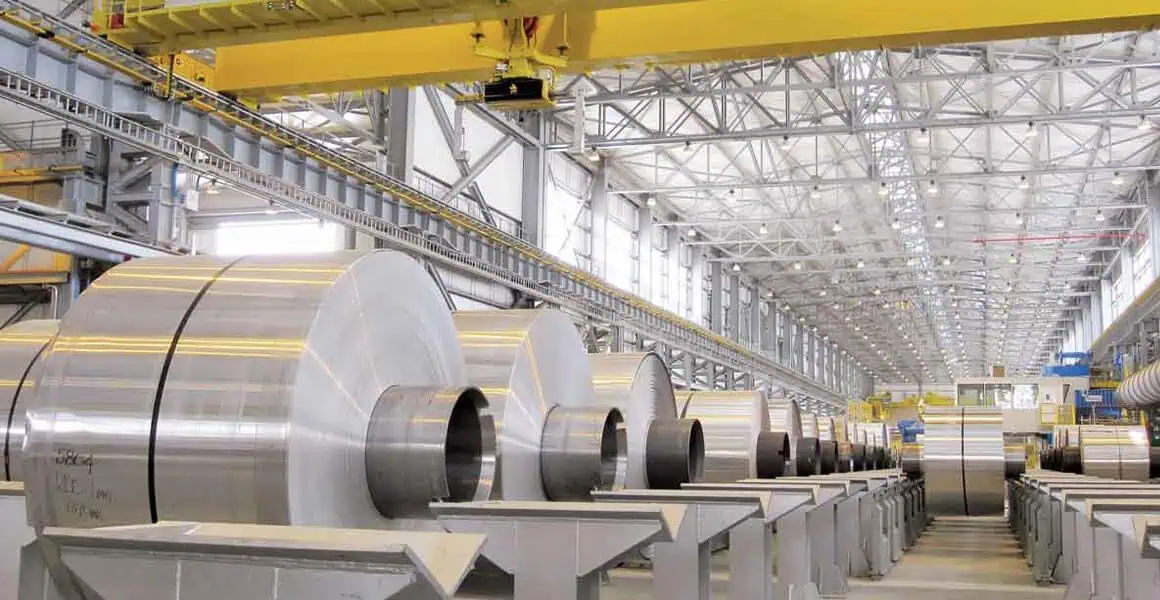
¿Cuánto tiempo duran las bobinas de aluminio??
La longevidad de la bobina de aluminio está determinada por varios factores, incluyendo el tipo de aleación, el entorno en el que se usa, y la existencia de recubrimientos o tratamientos superficiales. Bobina de aluminio utilizada en aplicaciones al aire libre, como revestimiento o techo, puede sobrevivir durante décadas, especialmente si está anodizado o recubierto para una mayor durabilidad.
La bobina de aluminio utilizada en intercambiadores de calor industrial o aplicaciones automotrices puede tener una vida útil más corta debido al desgaste y la tensión. Sin embargo, con mantenimiento y cuidado adecuados, La bobina de aluminio puede retener la integridad estructural y el funcionamiento durante un período prolongado de tiempo, entregando un buen retorno de la inversión.
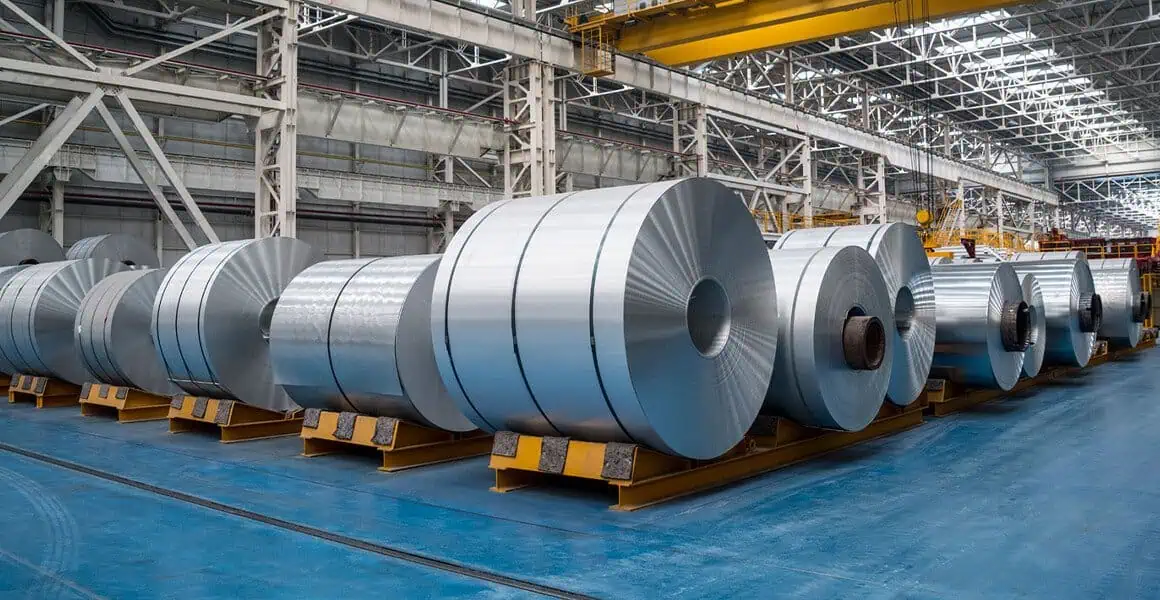
Resumen
La bobina de aluminio es un material muy versátil utilizado en una variedad de industrias. Naturaleza liviana de la bobina de aluminio, resistencia a la corrosión, y una formabilidad sobresaliente lo hace adecuado para una variedad de aplicaciones. Comprender los muchos tipos, cualidades, y las aplicaciones de la bobina de aluminio le permiten hacer la mejor opción para sus requisitos únicos. Ya sea para la construcción, fabricación de automóviles, o sistemas eléctricos, La bobina de aluminio sigue siendo una opción popular para la duración, soluciones efectivas.


